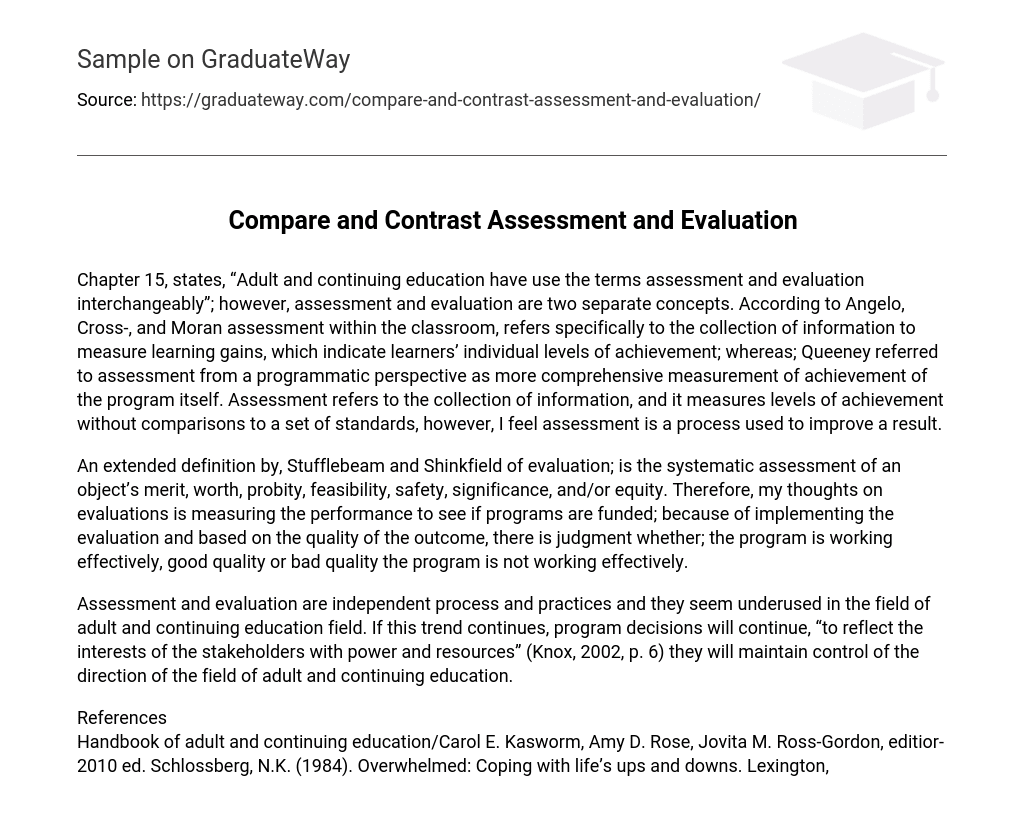In Chapter 15, it is stated that adult and continuing education have used the terms assessment and evaluation interchangeably. However, assessment and evaluation are two distinct concepts. Angelo, Cross-, and Moran define assessment as the collection of information to measure learning gains within the classroom, indicating individual levels of achievement. On the other hand, Queeney views assessment from a programmatic perspective, considering it a more comprehensive measurement of the program’s own achievement. Assessment involves collecting information and measuring levels of achievement without comparison to a set of standards. Personally, I believe assessment is a process aimed at improving results.
Stufflebeam and Shinkfield define evaluation as the systematic assessment of an object’s merit, worth, probity, feasibility, safety, significance, and/or equity. In my perspective, evaluations serve to measure performance for the purpose of determining program funding eligibility. Through the implementation of evaluations and assessing outcome quality, judgments can be made regarding program effectiveness. This assessment ultimately determines whether the program is of good or poor quality and functioning efficiently or not.
In the field of adult and continuing education, assessment and evaluation are not used enough. If this continues, powerful stakeholders will be able to control the direction of the field by influencing program decisions (Knox, 2002, p. 6).
References
Handbook of adult and continuing education/Carol E. Kasworm, Amy D. Rose, Jovita M. Ross-Gordon, editor-2010 ed.
Schlossberg, N.K. (1984). Overwhelmed: Coping with life’s ups and downs. Lexington.





